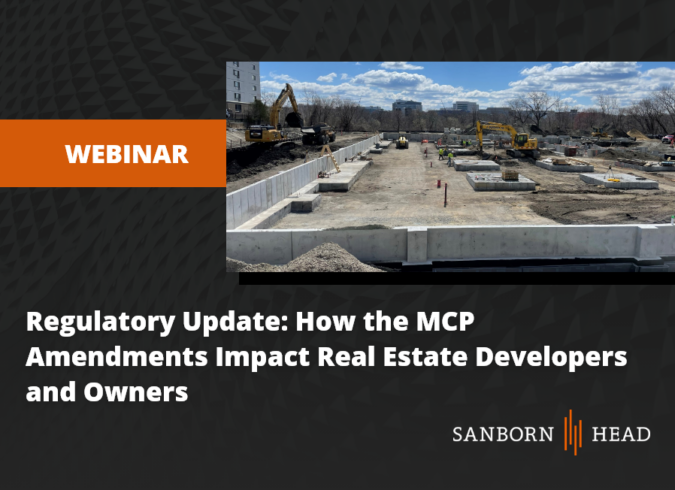On September 1, 2023, the Massachusetts Department of Environmental Protection sent the Secretary of State the final 2024 revisions to the Massachusetts Contingency Plan (MCP), the regulations that govern the assessment and remediation of sites in Massachusetts impacted by oil and/or hazardous materials (OHM). The changes to the MCP (310 CMR 40.0000) will take effect on March 1, 2024 upon which time they will be published in full in the Massachusetts Register. These pending changes—previously known as the “2019 Revisions” which were delayed due to COVID-19—are the first substantive revisions to the MCP since 2014 and the first changes since PFAS-related revisions were introduced in 2019. The new revisions include important changes that will impact how sites encumbered with OHM will trigger notification and be assessed and remediated in the future.
To help you understand how these changes might impact your current properties and redevelopment efforts in Massachusetts, Matthew Heil of Sanborn, Head & Associates has provided an overview of the pending changes along with commentary on how these changes will impact site assessments and remedial activities going forward.
Why watch?
This presentation presents an overview of the upcoming changes to the Massachusetts Contingency Plan (MCP). Topics covered include:
- Changes to the Reportable Concentrations (RCs) and Method 1 cleanup criteria for soil and groundwater
- Key MCP definition changes
- Important changes to Risk Characterization methodologies including new soil Exposure Point Concentrations requirements
- Modifications to various response action requirements including Remedial Monitoring Reports, Status Reports, Temporary Solutions, and Active Exposure Pathway Mitigation Measures
- Additional considerations for climate change
Posted In: Events
Tagged In: Development, Presentations





